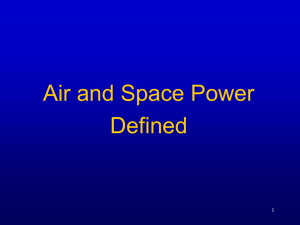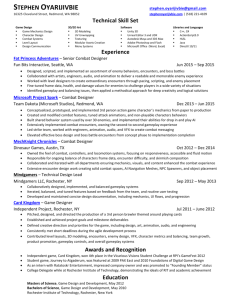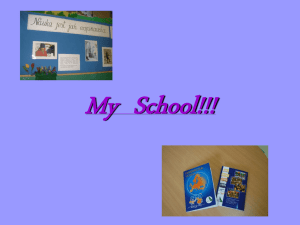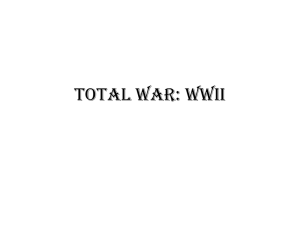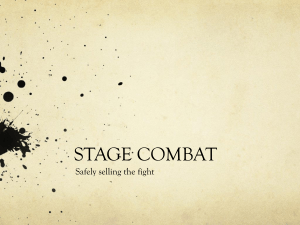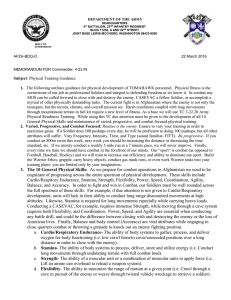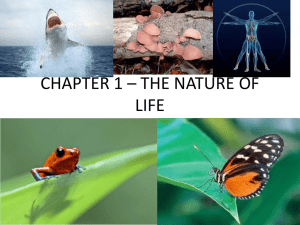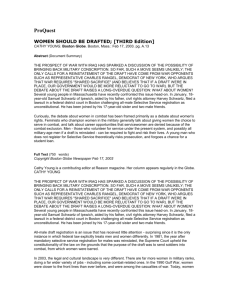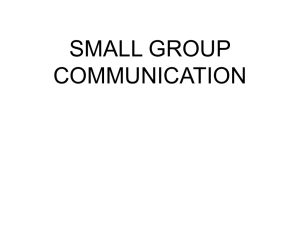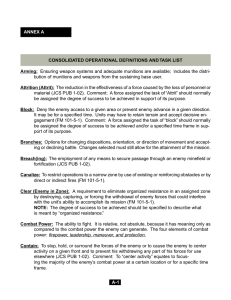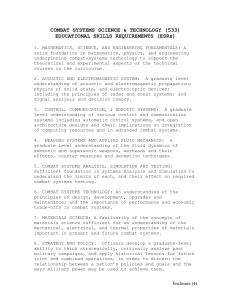ISAAC & EINSTein
advertisement
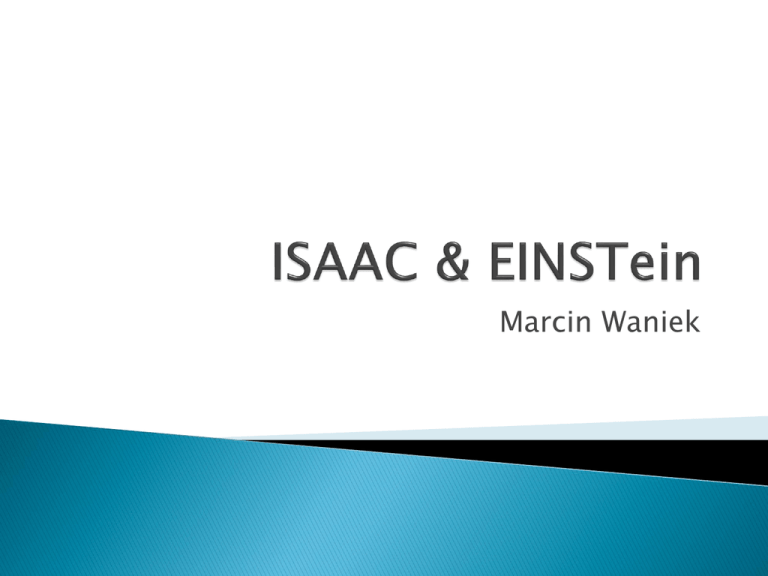
Marcin Waniek Towards a Science of Experimental Complexity: An Artificial-Life Approach to Modeling Warfare Andy Ilachinski, Center for Naval Analyses Homogeneous forces that are continually engaged in combat Soldiers always aware of the position and condition of all opposing units Appropriate for static trench warfare or artillery duels Rather unrealistic for modern (and also much older) battlefield "War is ... not the action of a living force upon lifeless mass ... but always the collision of two living forces.„ - Carl von Clausewitz “The fight is chaotic yet one is not subject to chaos.” – Sun Tzu Dynamical system composed of many nonlinearly interacting adaptive agents. Local action, which often appears disordered, induces long range order. No master “voice” that dictates the actions of each and every combatant. Military forces must continually adapt to a changing combat environment. Irreducible Semi-Autonomous Adaptive Combat Bottom-up, synthesist approach to the modeling of combat. „Conceptual playground" to explore highlevel emergent behaviors arising from various low-level interaction rules. Model patterned after mobile cellular automata rules. Doctrine: a default local-rule set specifying how to act in a generic environment Mission: goals directing behavior Situational Awareness: sensors generating an internal map of environment Adaptability: an internal mechanism to alter behavior and/or rules Agent belongs to one of two armies – Red or Blue Agent exists in one of three states – alive, injured or dead Each agent has defined sensor and weapon range Each agent is equipped with personality defined by vector ω = (ω1, ω2, ..., ω6) where -1 ≤ ωi ≤ 1 and |ω1| + ... + |ω6| = 1. ω1 ω2 ω3 ω4 ω5 ω6 - the number of alive friendly agents - the number of alive enemy agents - the number of injured friendly agents - the number of injured enemy agents – the distance from friendly flag – the distance from enemy flag ω = (1/20, 5/20, 0, 9/20, 0, 5/20) five times more interested in moving toward alive enemies than alive friendlies, even more interested in moving toward injured enemies ω = (-1/6,-1/6,-1/6,-1/6,-1/6,-1/6) wants to move away from, rather than toward, every other agent and both flags, i.e. it wants to avoid action of any kind. Rules telling how to alter agents personality according to environmental conditions. Basic meta-rule classes: advance toward enemy flag, cluster with friendly forces, engage the enemy in combat Examples of other meta-rules: retreat, pursuit, support, hold position. Red effectively encircles Blue forces Fixed Blue personalities unable to find countermeasures Example of nonmonotonic behavior Enlarging Red forces sensor range leads to a worse outcome Red forces bred using genetic algorithm, Blue forces fixed Red able to weaken the center of Blue line, and then attack the weak spot with all forces Enhanced ISAAC Neural Simulation Toolkit Context-dependent and user-defined agent behaviors (i.e. personality scripts) On-line genetic algorithm, neural-net, reinforcement-learning, and pattern recognition toolkits Agents fighting as a part of small units
